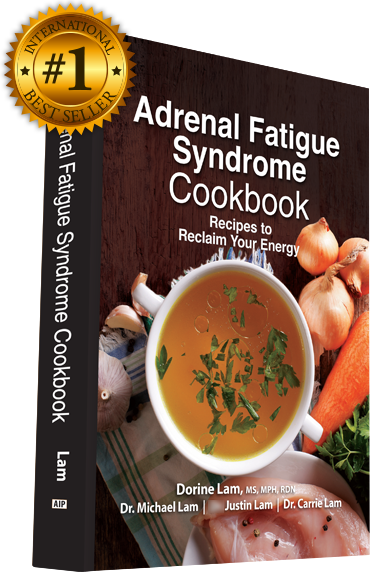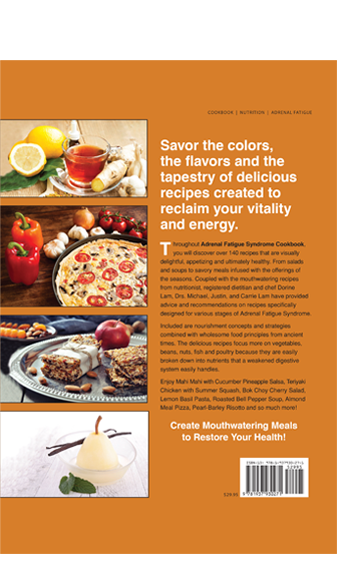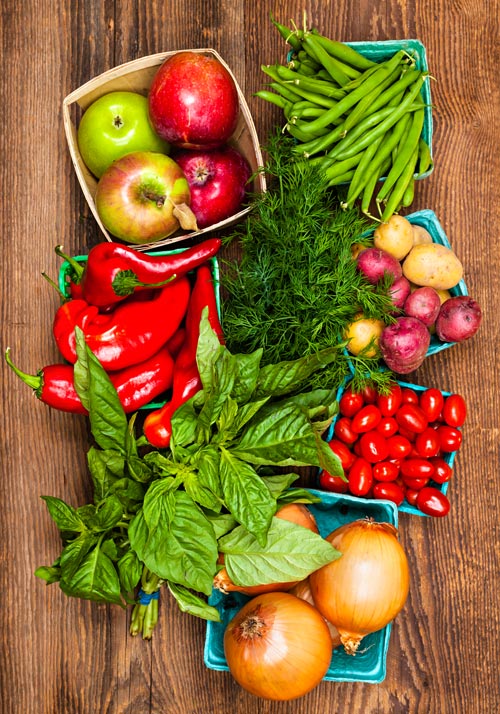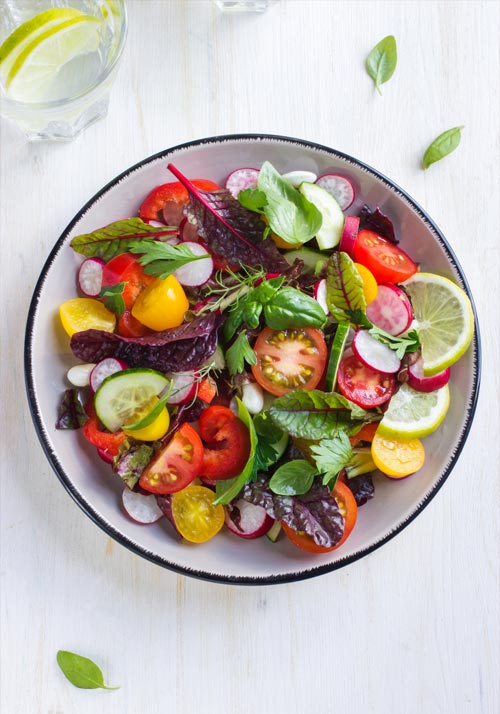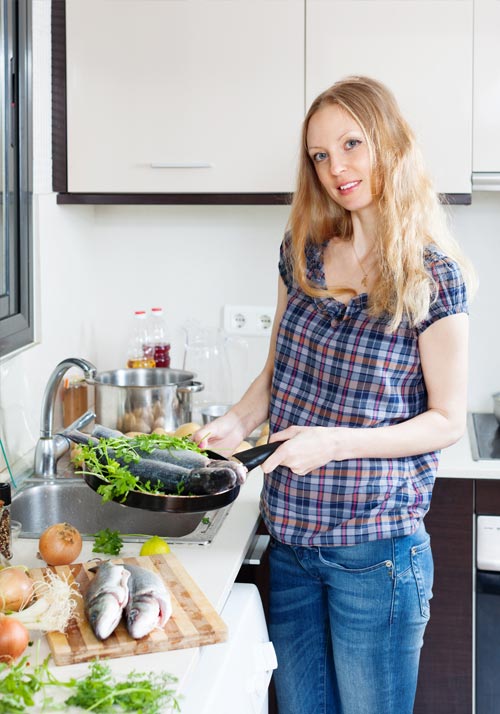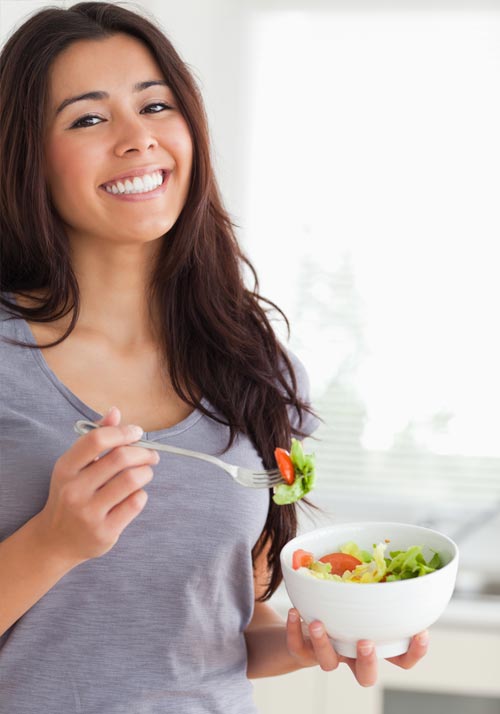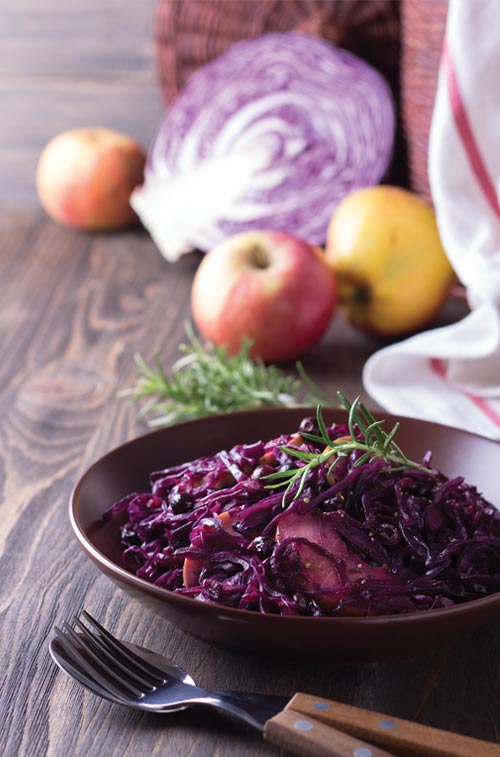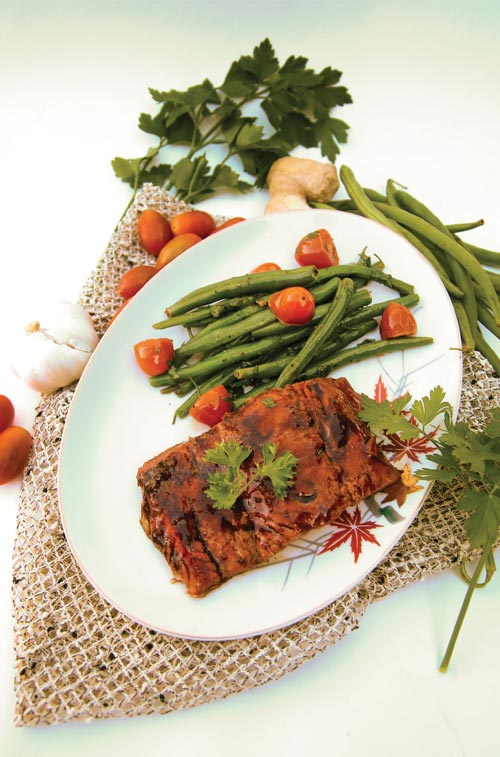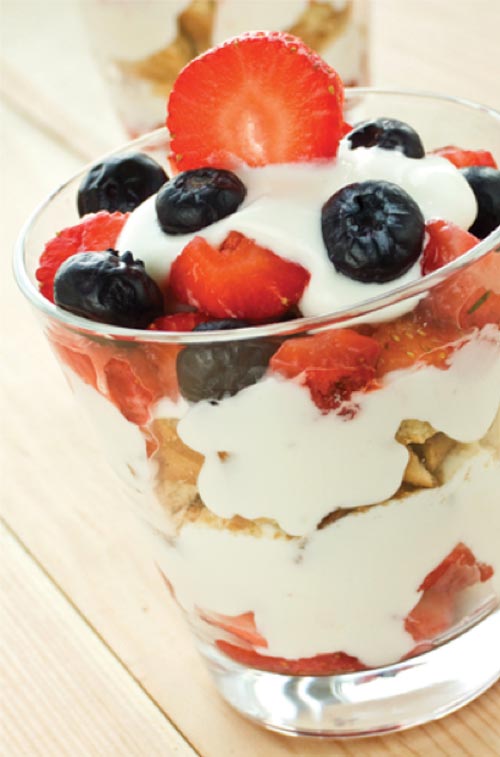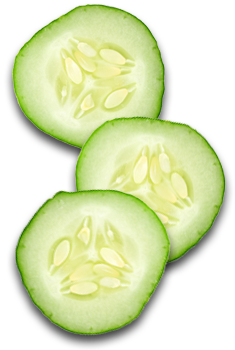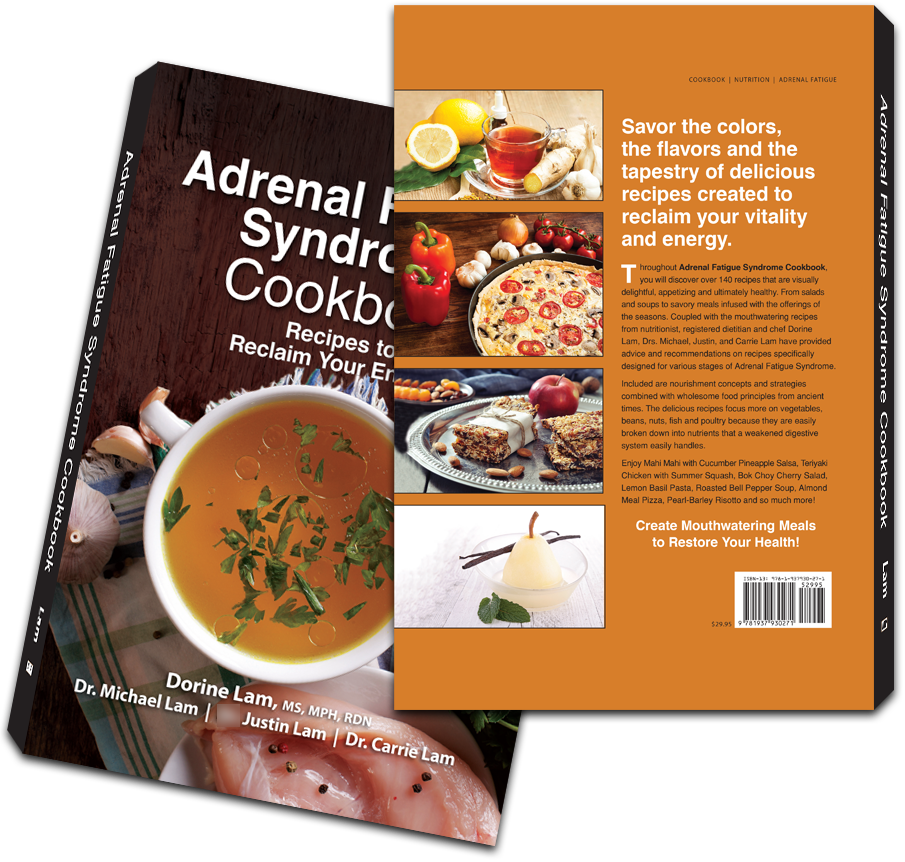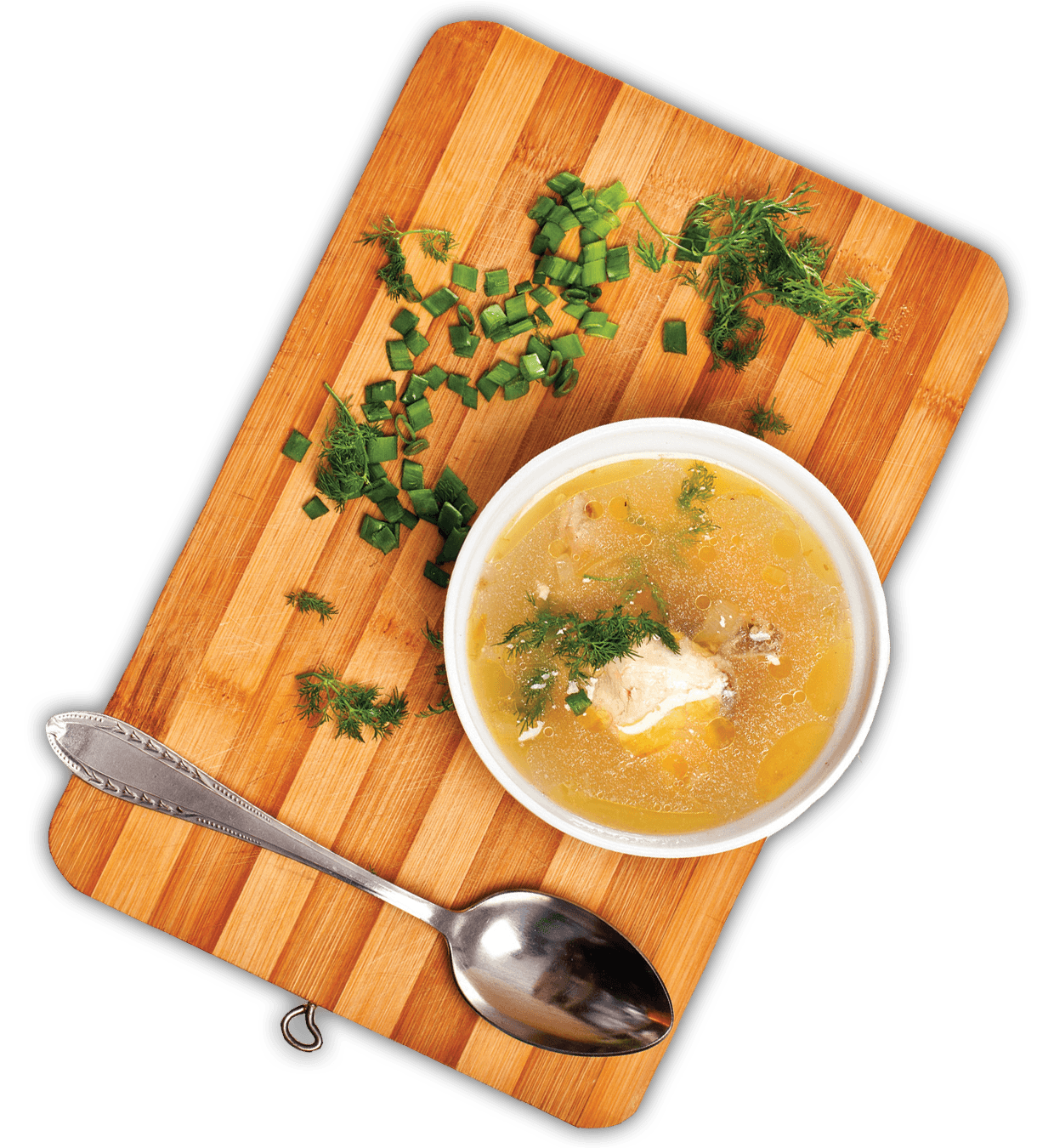
All recipes are identified by easy, medium, and challenging preparation levels, yet with easy-to-follow instructions.
Why Read This Book?
Reasons to Read This Book
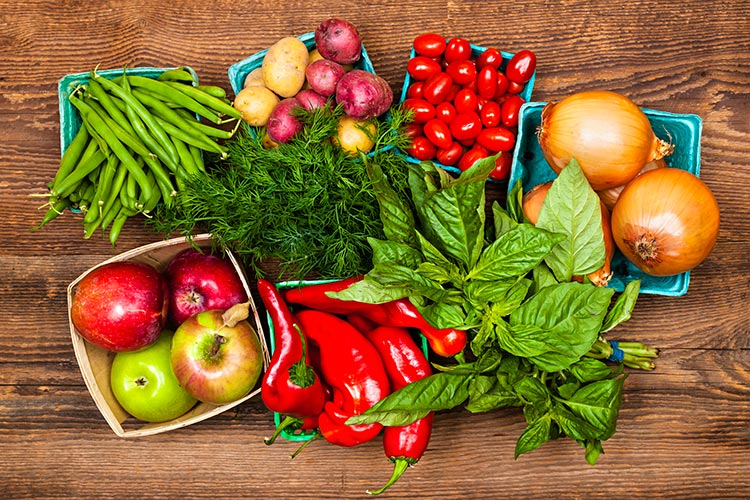 As a team of nutritional professionals helping people recover from AFS, many of whom are bedridden and in a catabolic state with severe fatigue, we have observed the wonderful, direct effects of nutrition, if done right, on a sensitive and weak body. This book encompasses our years of experience in developing recipes and dietary principles specifically for AFS recovery.
As a team of nutritional professionals helping people recover from AFS, many of whom are bedridden and in a catabolic state with severe fatigue, we have observed the wonderful, direct effects of nutrition, if done right, on a sensitive and weak body. This book encompasses our years of experience in developing recipes and dietary principles specifically for AFS recovery.
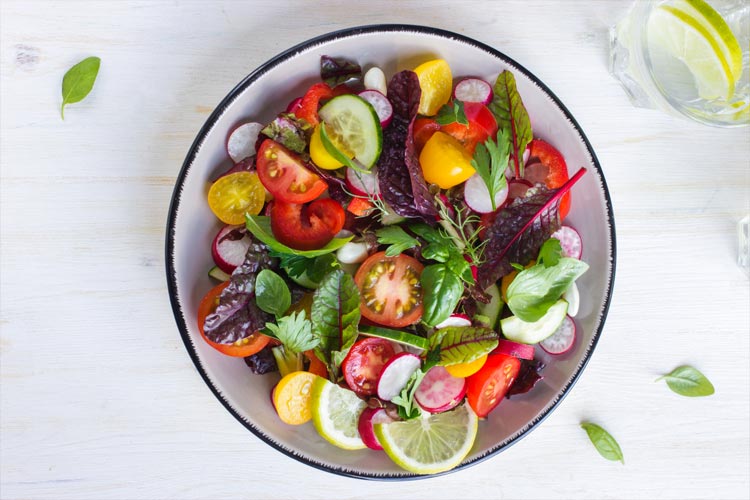 The nourishment concepts and strategies of this book incorporate wholesome food principles from ancient times, when food was cherished as a healing tool. These principles work then and now because the human body has not changed. We therefore emphasize the importance of eating whole foods, especially vegetables and easily digestible proteins.
The nourishment concepts and strategies of this book incorporate wholesome food principles from ancient times, when food was cherished as a healing tool. These principles work then and now because the human body has not changed. We therefore emphasize the importance of eating whole foods, especially vegetables and easily digestible proteins.
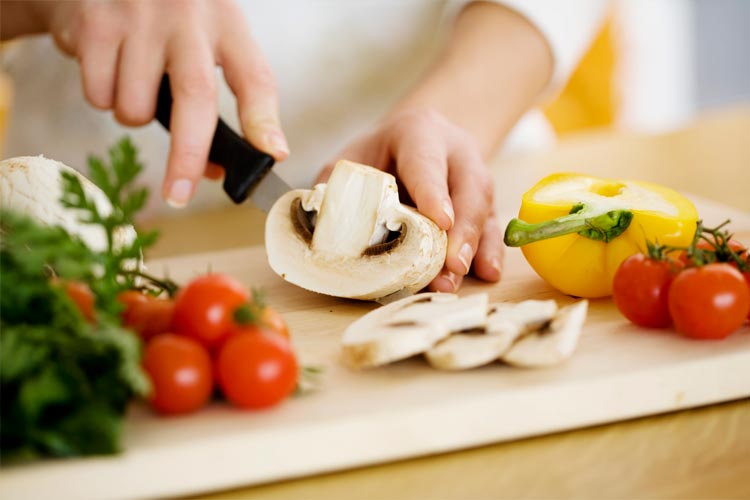 The more you know about the science behind nutrition, the better you are able to self-navigate. In addition to recipes, we detail the science of macronutrients and explain the reasons behind different preparations of food and their clinical results on the neuroendocrine system to help you in your recovery process. The body possesses an amazing capacity to rebound if we only give it the tools to nurture it systematically with these recipes.
The more you know about the science behind nutrition, the better you are able to self-navigate. In addition to recipes, we detail the science of macronutrients and explain the reasons behind different preparations of food and their clinical results on the neuroendocrine system to help you in your recovery process. The body possesses an amazing capacity to rebound if we only give it the tools to nurture it systematically with these recipes.
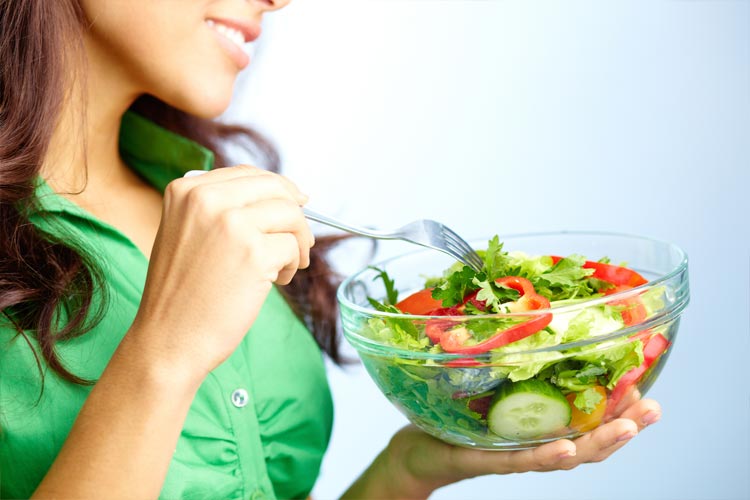 The Adrenal Fatigue Syndrome Cookbook is divided into 8 chapters, each detailing a common symptom seen in adrenal fatigue. Utilizing these specific recipes, you will not only strengthen your adrenals but also help alleviate your symptoms at the same time.
The Adrenal Fatigue Syndrome Cookbook is divided into 8 chapters, each detailing a common symptom seen in adrenal fatigue. Utilizing these specific recipes, you will not only strengthen your adrenals but also help alleviate your symptoms at the same time.
Look Inside
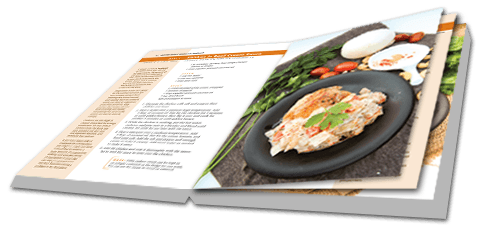
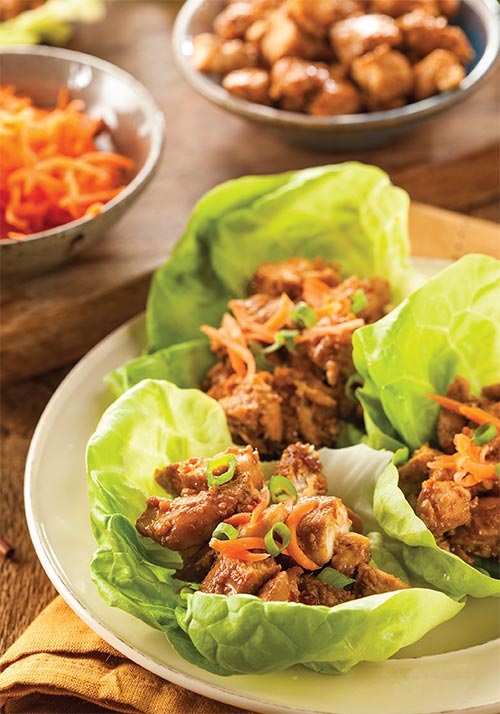
Delicious images
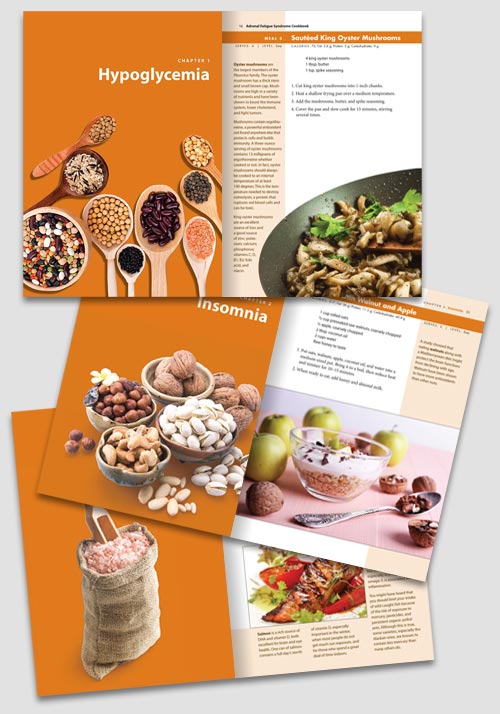
Eat your symptoms away
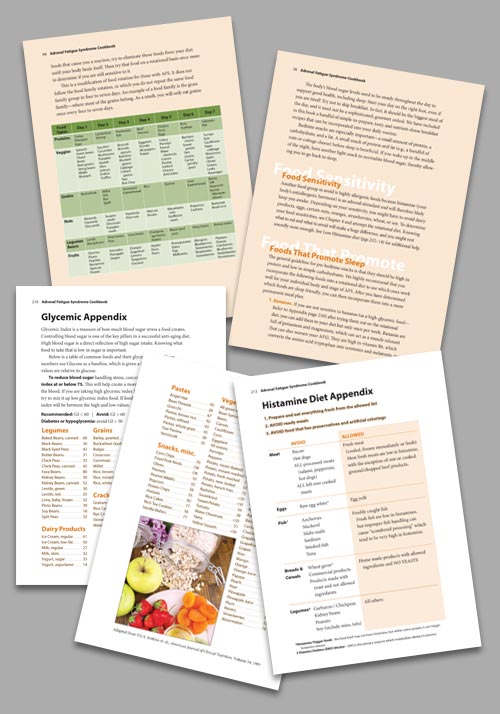
Learn about your food
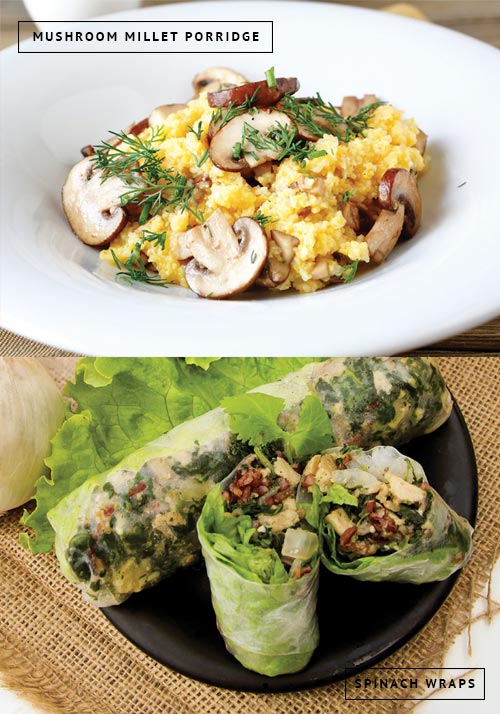
Over 140 recipes
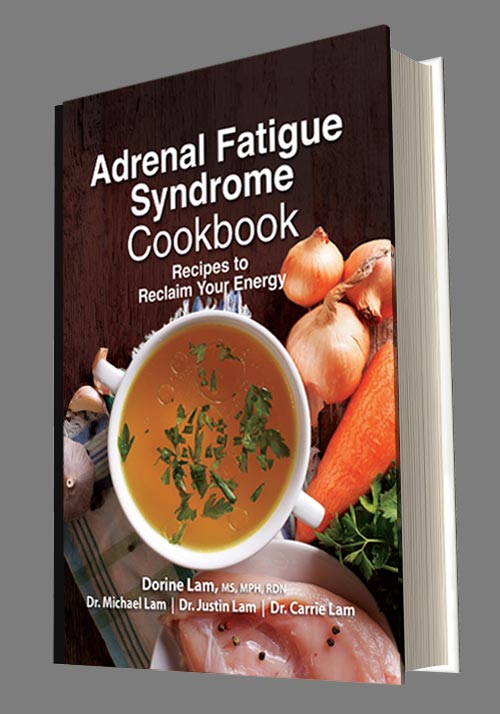
Hard cover
Featured Recipes
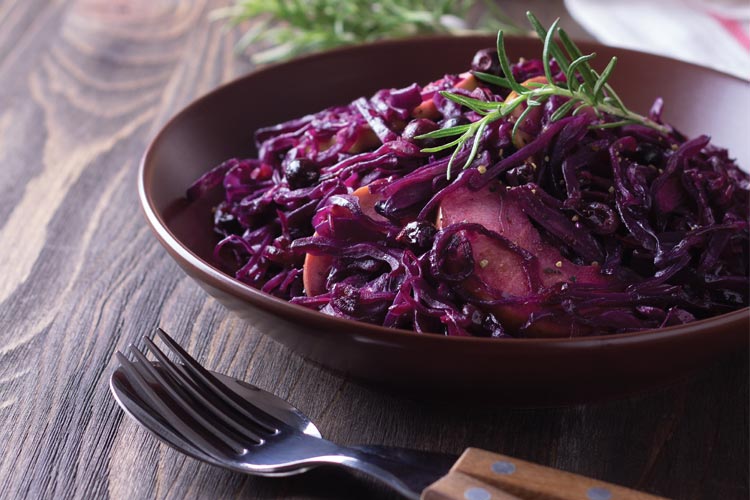
SERVES: 6 | LEVEL: Easy | CALORIES: 161; Fat: 8 g; Protein: 3 g; Carbohydrates: 22 g
medium-sized red cabbage, finely shredded
1 large sweet apple, cut in small pieces
1 large red onion, halved and thinly sliced
4 cloves garlic, crushed
4 tbsp. butter, melted
1 tbsp. light brown sugar
3 tbsp. balsamic vinegar
Salt and pepper to taste
- Preheat oven to 350°F.
- Mix well all the ingredients in a large ovenproof dish with a lid. Bake 1–1½ hours, stirring every 30 minutes. When done, the cabbage is soft but not slushy.
- Serve hot or store in the refrigerator and serve cold or reheated.
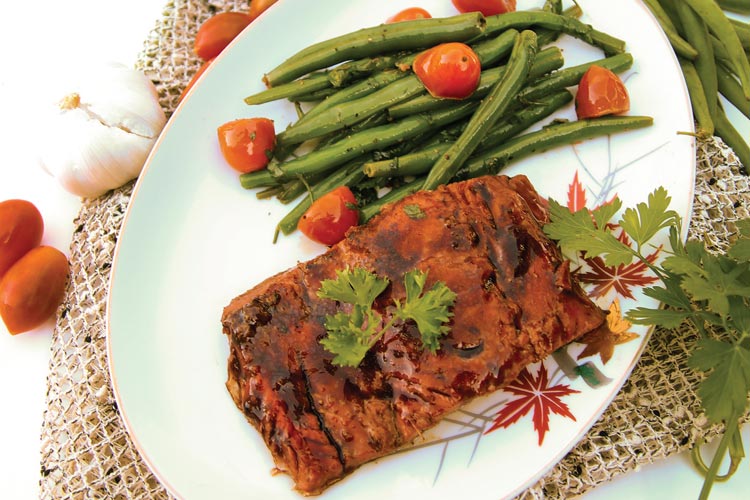
SERVES: 4 | LEVEL: Easy | CALORIES: 218; Fat: 9.2 g; Protein: 29 g; Carbohydrates: 3 g
Nutritional value is based on a 4 oz. cooked salmon steak
4 salmon steaks (each 8 to 10 oz. and 1-inch thick)
Salt and pepper to taste
Sauce
1 tbsp. fresh orange juice
1 tbsp. ketchup
1 tbsp. vegetarian oyster sauce
¹/8 tsp. grated fresh ginger
1 tsp. honey
- Season both sides of the salmon steak with salt and pepper for 30–60 minutes.
- In a small bowl, whisk together the orange juice, ketchup, vegetarian oyster sauce, ginger, and honey.
- Preheat the oven broiler. Lay the salmon on a baking sheet lined with aluminum foil. Baste the salmon with the sauce. Broil the salmon about 4 inches from the heat source for 2 minutes.
- Turning the salmon over, baste with the sauce again, and broil for 2 minutes. Basting once more, broil for another 2 minutes.
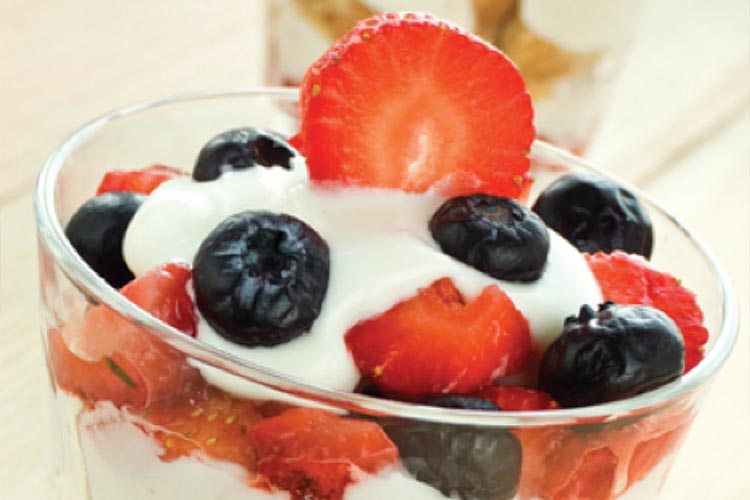
SERVES: 4 | LEVEL: Easy | CALORIES: 300; Fat: 2.9 g; Protein: 10.6 g; Carbohydrates: 61.6 g
1½ cups of sugar-free strawberry yogurt
(or any flavor you choose as long as it is sugar free)
2 cups granola
1 cup fresh strawberries, sliced
1 cup blueberries
- In each of 4 parfait glasses, alternate layers of yogurt, granola, strawberries, and blueberries. You can use raspberries or apples as well.
- Eat as a late afternoon snack or for dessert.
Note:
You can also use plain whole-milk yogurt and add your own sweetener or flavor.
